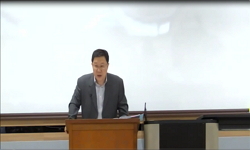본고는 낭만주의 시대를 대표하는 코울리지의 초기 시를 그 당시 사회문제 중의 하나였던 반노예제 운동과 연관시킨 연구이다. 코울리지는 워즈워스와 함께 낭만주의를 대표하는 시인으로...
http://chineseinput.net/에서 pinyin(병음)방식으로 중국어를 변환할 수 있습니다.
변환된 중국어를 복사하여 사용하시면 됩니다.
- 中文 을 입력하시려면 zhongwen을 입력하시고 space를누르시면됩니다.
- 北京 을 입력하시려면 beijing을 입력하시고 space를 누르시면 됩니다.

낭만주의 시대의 반노예제 운동― 코울리지의 「그리스 송가」와 「노예 무역에 관한 강연」을 중심으로 = Anti-Slavery Movement in the Romantic Period: Focusing on Coleridge's “Greek Ode” and “Lecture on the Slave- Trade”
한글로보기https://www.riss.kr/link?id=A109496313
-
저자
김상훈 (계명대학교)
- 발행기관
- 학술지명
- 권호사항
-
발행연도
2024
-
작성언어
Korean
-
주제어
영국 낭만주의 ; 코울리지 ; 반노예제 운동 ; 노예제도 ; 노예무역 ; English Romantism ; Coleridge ; anti-slavery movement ; slavery ; slave trade
-
등재정보
KCI등재
-
자료형태
학술저널
- 발행기관 URL
-
수록면
71-95(25쪽)
- 제공처
- 소장기관
-
0
상세조회 -
0
다운로드
부가정보
국문 초록 (Abstract)
본고는 낭만주의 시대를 대표하는 코울리지의 초기 시를 그 당시 사회문제 중의 하나였던 반노예제 운동과 연관시킨 연구이다. 코울리지는 워즈워스와 함께 낭만주의를 대표하는 시인으로서 노예제 문제에 있어서도 그의 낭만주의적인 면모가 드러난다. 코울리지가 대학 신입생때 경연대회에서 금메달을 받았던 시 「그리스 송가」는 노예들의 처참한 현실, 백인 노예무역 종사자들에 대한 분노와 복수, 윌버포스의 등장으로 노예무역과 노예제도가 사라질 것이라는 희망을 나타낸다. 그리고 코울리지가 사우디와 함께 브리스톨 항구 커피하우스에서 한 「노예무역에 관한 연설」은 인간의 인위적인 욕구가 악을 낳는 근원이라고 언급하면서 영국 국민들에게 서인도 제도에서 혹독한 노동을 하는 노예들에 의해 생산된 제품들을 사지 말아야 한다고 주장한다. 이 주장을 위해서 악의 근원과 노예무역 종사자들의 만행, 그리고 아프리카 흑인 노예들이 어떻게 노예가 되었지에 대한 과정을 피력한다. 코울리지는 시로써 노예무역과 노예제도에 반대 했을 뿐만 아니라, 노예무역의 온상지인 브리스톨 항구에서 직접 강연함으로써 반노예제 운동가의 면모를 보여준다. 낭만주의 시인인 코울리지는 억압에 대한 저항을 위해 반노예 운동에 그의 작품과 실천으로 가담하였다. 코울리지는 저항을 통한 억압으로부터의 자유와 인간의 존엄성을 강조하는 낭만주의자의 성향을 잘 보여 준다고 할 수 있다.
다국어 초록 (Multilingual Abstract)
Sanghoon Kim. 2024. Anti-Slavery Movement in the Romantic Period: Focusing on Coleridge's “Greek Ode” and “Lecture on the Slave- Trade”. Studies in British and American Language and Literature. This paper examines Coleridge's two early works, ...
Sanghoon Kim. 2024. Anti-Slavery Movement in the Romantic Period: Focusing on Coleridge's “Greek Ode” and “Lecture on the Slave- Trade”. Studies in British and American Language and Literature. This paper examines Coleridge's two early works, “Greek Ode” and “Lecture on the Slave- Trade” regarding the anti-slavery movement in Romantic period. Not only is “Greek Ode” a cornerstone of Coleridge's anti-slavery thought but also his first public effort against slave trade. In this poem, he exhibits his wrath and revenge to slave traders, and sympathizes with African black slaves in the West indies. He anticipates Wilberforce's role in ending slavery. In “Lecture on the Slave-Trade”, Coleridge tells the audience in Bristol why the slave trade has not disappeared so far, wishing English people to stop using slave product, and shows how the black slaves undergo many kinds of ordeals from slave traders. Both works express Coleridge's strong insistence on the abolition of slavery in that he strongly disagrees with the slave trade, blames the slave traders for the incredibly harsh treatment of the slaves and takes pity on the enslaved. His anti-slavery thoughts shows his respect for human dignity and sympathy for African black slaves. What Coleridge perceives is that the spirit of Romantic humanity is being denied, so he is willing to participate in the anti-slavery movement and advocate for the emancipation of Black slaves as one of the leading Romantics.
동일학술지(권/호) 다른 논문
-
- 한국영미어문학회
- 배경진
- 2024
- KCI등재
-
인류세 위기와 생태적 꿈: 『세계를 뜻하는 단어는 숲이다』을 중심으로
- 한국영미어문학회
- 김경옥
- 2024
- KCI등재
-
‘불확실한 정체성’에 대한 불안과 처벌의 욕망: 디킨즈의 『리틀 도릿』과 영국성
- 한국영미어문학회
- 허정애
- 2024
- KCI등재
-
Julia Margaret Cameron’s Dimbola: The World of Victorian Photographic Tableaux Vivants
- 한국영미어문학회
- 김정숙
- 2024
- KCI등재




 스콜라
스콜라






